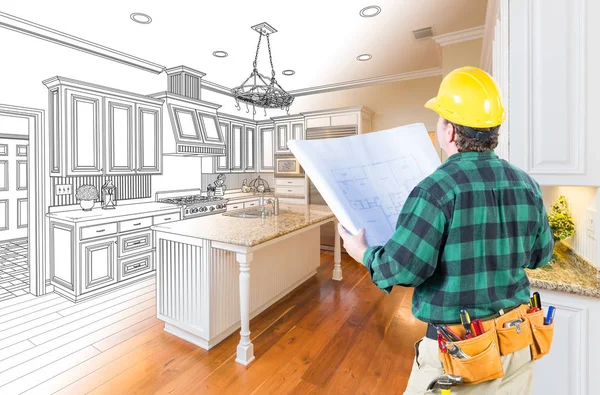
7 Mistakes To Avoid When Hiring A Custom Home Builder In Oregon
7 Mistakes To Avoid When Hiring A Custom Home Builder In Oregon
Building a custom home is a dream for many. It’s the opportunity to craft a living space tailored to individual preferences, ensuring every corner resonates with personal aesthetics and functionality. In Oregon, with its diverse landscapes and architectural influences, having a custom-built home can be a delightful experience. However, the key to achieving this dream lies in hiring the right residential custom house builder. Making a wrong choice can make achieving this dream unnecessarily time consuming and complicated.
Lack of Recommendations
One of the most common missteps in the homebuilding journey is bypassing the process of gathering recommendations. While online reviews and advertisements can provide some information, there’s an undeniable value in hearing firsthand experiences from friends, family, or acquaintances.
When you ask for recommendations, you get real-world insights. Someone in your circle might have had an experience, good or bad, with a builder you’re considering. They could provide valuable feedback on the builder’s work ethic, quality of materials, adherence to timelines, and overall professionalism.
Moreover, through recommendations, you can also discover potential red flags. If multiple people have had similar negative experiences or have faced challenges with a particular builder, it’s a sign to proceed with caution or to consider other options.
Additionally, a positive recommendation doesn’t just vouch for the builder’s skill set, but it also indicates the builder’s ability to maintain good relationships with clients. Trust, communication, and understanding are foundational elements in the homebuilding process, and recommendations can shed light on these aspects.
In custom home building having a builder who listens, understands, and executes the unique vision of the homeowner is paramount. Neglecting to gather recommendations can deprive you of these insights, potentially leading to regrettable decisions.
Hiring A Builder Without A License
In Oregon, like many other states, it is a legal requirement for builders to have a valid operating license.
Hiring a residential custom home builder without a license can expose homeowners to numerous risks. First, there’s the question of credibility. A license is a testament to a builder’s qualifications, expertise, and adherence to local building codes and regulations. Without it, there’s no guarantee of the builder’s competence or knowledge.
Secondly, in the unfortunate event of disputes or disagreements, having an unlicensed builder can complicate matters. Legal protections and recourses available to homeowners might be limited when dealing with unlicensed professionals.
Also, the financial implications of hiring an unlicensed builder can be significant. If the constructed home doesn’t adhere to local codes, the homeowner might face penalties or be required to invest in costly modifications.
Furthermore, licensed builders are typically required to have insurance. This insurance can protect homeowners from potential liabilities arising from accidents or damages during construction. An unlicensed builder might not have this insurance, placing the onus of any financial burden arising from unforeseen events on the homeowner.
Planning To Do DIY Work
The idea of putting a personal touch on every corner can sometimes lead to the consideration of DIY (Do It Yourself) work, imagining it as a way to save costs or add an individual flair. However, merging DIY efforts with professional work in custom home building can pose challenges.
Introducing DIY work into a project managed by a professional custom house builder can disrupt the construction flow. Builders work with a planned schedule, and unexpected changes or additions can delay timelines. There’s also the risk of DIY efforts not aligning with the professional standards of the rest of the home, leading to consistency in finish or design.
Moreover, certain aspects of home construction require specific knowledge and expertise. For instance, electrical or plumbing work, if not done correctly, can lead to safety hazards or long-term issues. A custom house builder usually collaborates with experts in these fields to ensure the highest standards. Intervening with DIY can compromise these standards.
There’s also the matter of warranties or guarantees. Builders often offer these in their work, ensuring homeowners have peace of mind. However, if parts of the project are altered or adjusted through DIY, it might void these warranties.
Putting Cost Over Quality
The dream of a custom home often comes with budgetary considerations. While being mindful of costs is pragmatic, it’s essential to differentiate between intelligent savings and compromising on quality. Some homeowners, in a bid to reduce expenses, may opt for lower-quality materials or artistry. However, this decision can have long-term implications.
Opting for lesser-quality materials might offer immediate cost savings, but it can lead to frequent repairs and replacements in the future. For instance, choosing sub-par roofing might result in leaks or damages within a few years, leading to additional expenses and hassles.
Similarly, going with a custom house builder solely based on a lower quote without considering their track record or expertise can be a pitfall. A less experienced builder might make errors, skip essential steps, or need to be more thorough, leading to issues down the line. The house’s longevity, safety, and overall aesthetic can be compromised
Quality also plays a role in the home’s overall value. A well-constructed home with top-notch materials can have a higher resale value, offering a return on investment. On the other hand, visible compromises in quality can deter potential buyers or lower the home’s market value.
Hiring A Builder On Price Alone
Costs are undeniably a significant consideration when building a custom home. But, deciding based solely on price can be a dangerous mistake. While everyone loves a great deal, it’s essential to remember the adage: “You get what you pay for.”
Choosing a custom house builder just because they offer the lowest quote can sometimes mean compromising on the experience, materials, or quality. Builders with a vast amount of experience and a track record of excellence might charge a premium. Still, they often bring with them the assurance of quality, adherence to timelines, and a smooth construction experience.
On the other hand, a less expensive builder might cut corners, use subpar materials, or lack adequate insurance. They might need more experience to manage challenges during construction, leading to delays and increased costs in the long run. They may have difficulty hiring and keeping a great team of people who are highly competent and capable of effectively executing unique, detailed custom designs.
It’s always a good practice to get multiple quotes and assess them not just on price but also on the builder’s reputation, past projects, references, and the value they promise to deliver.
Failing To Have A Clear Contract
The foundation of a successful custom home-building experience is a clear, comprehensive contract. Some homeowners, in their eagerness to get the project started, might need to pay more attention to the importance of a detailed agreement or fail to ensure all aspects of the project are covered.
A well-defined contract protects both the homeowner and the builder. It outlines the scope of work, materials to be used, timelines, payment schedules, and provisions for any unforeseen challenges or plan changes. Without a clear contract, disputes can arise over misunderstandings or miscommunications
It’s crucial to ensure that every aspect of the home, down to the most minor details, is included in the contract. Any changes or modifications made during the construction process should be documented and agreed upon in writing, ensuring a record of all decisions.
Not Being Prepared For Hidden Costs And Delays
Building a custom home is a complex process, and despite the best planning, unexpected challenges can arise. Some homeowners enter the process expecting everything to go precisely as planned, both in terms of costs and timelines. This lack of preparedness for unforeseen expenses or delays can lead to frustrations and financial strains.
There might be site-related challenges, such as unexpected soil conditions that require additional work for foundation laying. Weather can play a spoilsport, causing delays that push the project’s timeline. Changes in design or material choices during construction can also increase costs.
It’s always a wise decision to have a contingency fund set aside when starting a custom home project. This fund acts as a financial cushion for any unexpected expenses, ensuring the construction process remains uninterrupted. Additionally, being mentally prepared for potential delays and having a flexible timeline can make the home-building journey less stressful. Communication with the builder is key here; having regular updates can help in setting realistic expectations and being prepared for any eventualities.
Tags: bend home builder, Bend homebuilder, Blog, choosing a custom homebuilder, custom homesoregon home builder, luxury, oregon home builder, timberframeCategories: Blog, Custom Home Builders Bend OR, Custom Homes, Under Construction, Value and Costs



